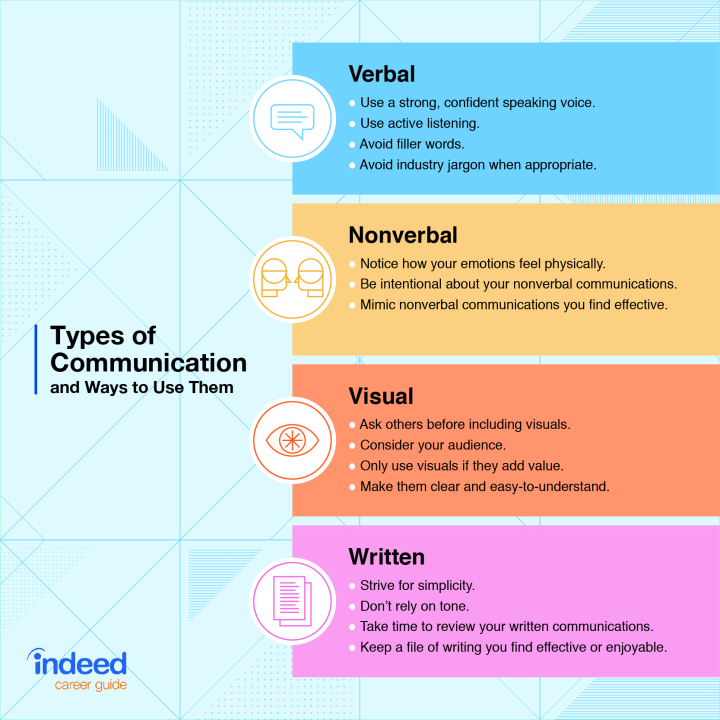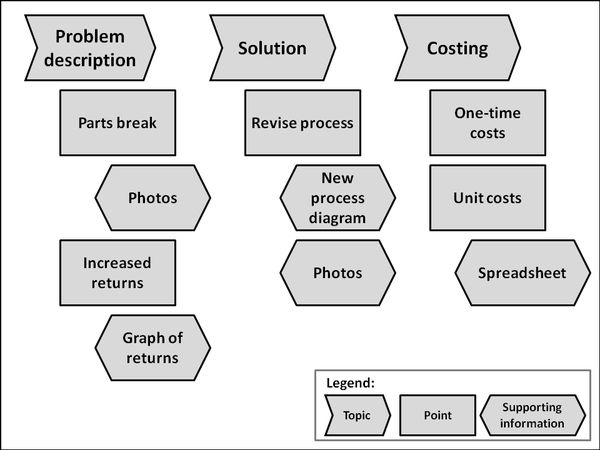What are the Benefits of Including Details in Business Writing And Speaking?
Including details in business writing and speaking has several benefits including increased clarity and understanding of the topic for the audience, improved credibility and professionalism, and enhanced persuasive power. By carefully including relevant details, businesses can effectively communicate their ideas, build trust with their audience, and ultimately achieve their goals.
This article explores these benefits in detail and provides valuable insights on how to incorporate details effectively in both written and spoken communication in a business context. It highlights the importance of being concise, yet specific, and provides practical tips to help business professionals achieve clarity and impact in their communication.
So, read on to discover the advantages of including details in business writing and speaking and improve your communication skills today.
1. Clear Communication
Clear communication plays a crucial role in business writing and speaking. It allows ideas, messages, and information to be effectively transmitted between the sender and receiver. Including details in your business writing and speaking endeavors brings forth several benefits that enhance the clarity of your communication. These benefits include avoiding misunderstandings and enhancing clarity.
1.1 Avoids Misunderstandings
Misunderstandings can occur when communication lacks sufficient details. By including specific and relevant details in your business writing and speaking, you can reduce the chances of misinterpretation. Details help to provide a complete picture, leaving no room for confusion or ambiguity.
For example, consider a scenario where a business email lacks details about a specific deadline for a project. The recipient might assume a different timeline, resulting in delays or misaligned expectations. By including specific details such as the exact date and time of the deadline, you ensure that everyone is on the same page, reducing the potential for misunderstandings.
1.2 Enhances Clarity
Enhancing clarity is another significant benefit of including details in business writing and speaking. Details act as supporting evidence, enabling you to paint a vivid and precise picture of your ideas or instructions. By providing specific information, you clarify your message and make it easier for your audience to understand and follow.
For instance, let’s consider a training session where the speaker simply mentions the steps of a process without any further details. The audience may struggle to grasp the intricacies and potential challenges associated with each step. However, if the speaker includes specific details about each step, such as potential obstacles to watch out for or tips to ensure successful implementation, the audience gains a clearer understanding of the process.
To summarize, clear communication is vital in business writing and speaking. Including details helps to avoid misunderstandings and enhances clarity, making your message more effective and impactful.

Credit: study.com
2. Builds Credibility
Including details in business writing and speaking helps build credibility by providing specific evidence or examples. It allows the audience to trust the information being presented and portrays the author or speaker as knowledgeable and reliable. By avoiding vague statements and incorporating relevant details, businesses can establish themselves as trustworthy sources of information.
Including details in business writing and speaking is a powerful way to establish credibility and gain trust from your audience. When you delve into specifics and provide information that is relevant and accurate, you demonstrate that you are knowledgeable in your field and can be relied upon. This not only helps to enhance your reputation but also strengthens your authority and positions you as an expert. Let’s explore two key aspects of how including details builds credibility: establishing authority and demonstrating knowledge.2.1 Establishes Authority
When you include specific details in your business writing and speaking, you establish authority within your industry. By providing concrete examples, statistics, or references, you show that you have a deep understanding of the subject matter. This instills confidence in your audience and increases their trust in your expertise. For instance, if you are writing a blog post about the benefits of digital marketing, you could include data-driven examples such as “According to a recent study, companies that implement digital marketing strategies experience an average increase in online sales by 20% within the first six months.” This specific detail not only adds credibility to your content but also positions you as someone who is knowledgeable about the impact of digital marketing on business growth.2.2 Demonstrates Knowledge
Including details in your business writing and speaking also demonstrates your knowledge and expertise. By providing specific information, insights, or examples, you show that you have a deep understanding of the topic at hand. This helps to build trust and credibility with your audience, as they perceive you as someone who is well-informed and capable of providing valuable insights. For example, if you are giving a presentation on effective project management, you could provide specific details about successful projects you have led in the past, highlighting key strategies, challenges faced, and lessons learned. By sharing these specific details, you showcase your firsthand knowledge and experience in the field of project management, enhancing your credibility as a reliable source of information. In conclusion, incorporating details in your business writing and speaking plays a significant role in building credibility. When you establish authority and demonstrate knowledge through specific examples, statistics, and insights, you position yourself as a trustworthy expert in your field. Don’t underestimate the power of details – they can make a significant difference in how your audience perceives you and your content.3. Effective Problem Solving
When it comes to effective problem solving, including relevant details in business writing and speaking plays a critical role. In this section, we will discuss how providing context and enabling better solutions can result in more effective problem-solving. By incorporating these strategies, businesses can overcome challenges and find successful resolutions.
3.1 Provides Context
Details in business writing and speaking provide important context that helps to clarify the issue at hand. By including specific information and relevant examples, you can ensure that your audience has a clear understanding of the problem you are addressing.
Let’s take a look at an example:
| Without Details: | With Details: |
|---|---|
| Our sales are down. | Our sales have decreased by 20% in the past quarter due to changes in customer preferences and increased competition. |
By providing specific details, such as the percentage decrease and the reasons behind it, you give your audience a more comprehensive understanding of the problem. This context allows them to make informed decisions and develop appropriate solutions.
3.2 Enables Better Solutions
Including details in business writing and speaking enables better solutions to be identified and implemented. Through the use of specific examples, data, and supporting evidence, you can support your ideas and proposals effectively.
Consider the following scenario:
- Lack of motivation and productivity among employees
- Implementing a flexible work schedule
- Providing recognition and rewards for outstanding performance
Without details, the above list of potential solutions may seem generic and vague. However, by including specific details, you can enhance the effectiveness of your suggestions:
- Low employee morale and productivity due to long working hours and limited work-life balance
- Implementing a flexible work schedule that allows employees to have control over their working hours and better balance their personal and professional lives
- Providing recognition and rewards, such as monthly employee of the month awards and performance-based bonuses, to increase motivation and job satisfaction
With these added details, the potential solutions become more targeted and actionable. This enables decision-makers to make informed choices and implement strategies that are more likely to address the root cause of the problem.
By including details in business writing and speaking, businesses can enhance their problem-solving abilities significantly. Providing context and enabling better solutions empowers individuals and teams to overcome challenges effectively. Next time you encounter a problem in your business, remember the value of including relevant details in your communication.
4. Professionalism And Attention To Detail
Including details in business writing and speaking is beneficial as it showcases professionalism and attention to detail. By providing specific information, it demonstrates a thorough understanding of the subject matter, instills trust in the audience, and adds credibility to the message being conveyed.
4.1 Reflects Care And Diligence
When it comes to business writing and speaking, including details reflects care and diligence. This attention to detail is crucial to maintaining professionalism in your communication. By taking the time to provide specific information and facts, you show your commitment to delivering accurate and reliable content.
Including details in your business writing and speaking not only demonstrates your thoroughness but also enhances the overall quality of your work. Let’s delve into some of the key benefits of incorporating details:
4.2 Sets A Standard For Quality
By including details in your business writing and speaking, you set a standard for quality. Attention to detail shows that you value precision and strive for excellence in everything you do.
When you consistently provide comprehensive and specific information, you establish a reputation for being reliable and trustworthy. This attention to detail can set you apart from competitors and position you as a professional who takes their work seriously.
Additionally, including details sets a standard for quality that others may follow. When co-workers, employees, or team members see your commitment to accuracy and thoroughness, they are likely to adopt the same approach.
Here are a few ways in which attention to detail sets a standard for quality:
- Ensures accuracy: including details minimizes the risk of miscommunication or misunderstanding, ensuring that the information is conveyed precisely.
- Builds trust: when details are included, it instills trust in your audience. They know they can rely on you to provide complete and accurate information.
- Enhances credibility: attention to detail enhances your credibility as a professional. It shows that you are meticulous in your work and dedicated to delivering high-quality outcomes.
- Exemplifies professionalism: including details demonstrates your professionalism and attention to even the smallest aspects of your work.
Incorporating details in your business writing and speaking not only showcases your care and diligence but also sets a standard for quality. Remember, attention to detail is key for maintaining professionalism and delivering content that is reliable and trustworthy.
5. Persuasive Communication
Including specific details in business writing and speaking can greatly enhance persuasive communication. By providing concrete information, such as statistics, examples, and facts, it adds credibility to your message, captivates your audience’s attention, and increases the effectiveness of your arguments.
5.1 Supports Claims And Arguments
When it comes to persuasive communication in business writing and speaking, including details is crucial. One of the benefits of incorporating these details is that they support claims and arguments. By providing specific information, facts, and evidence, you can make your case stronger and more compelling to your audience. Including relevant details helps to build credibility and trust with your readers or listeners. By presenting concrete examples, statistics, or case studies, you can back up your claims and demonstrate that you have done your research. This shows that you are knowledgeable and well-informed, making it more likely for your audience to believe what you are saying. Moreover, supporting your claims and arguments with details also allows you to anticipate and address potential objections or counterarguments. By proactively addressing any doubts or skepticism, you can make your communication more persuasive and increase your chances of winning over your audience.5.2 Engages And Influences Audience
Another benefit of including details in business writing and speaking is that it engages and influences your audience. When you provide specific examples, anecdotes, or case studies, you make your content more relatable and captivating for your readers or listeners. This helps to grab their attention and keep them engaged throughout your communication. People are naturally drawn to stories and real-life examples. By incorporating these details, you can create a connection with your audience and make your message more memorable. This not only helps in capturing their attention but also influences their opinions and decisions. Additionally, including details adds depth and richness to your communication. It allows you to paint a vivid picture, giving your audience a clear understanding of the topic at hand. Whether you are describing a product, outlining a process, or explaining a concept, providing specific details helps your audience visualize and comprehend the information better. In conclusion, when it comes to persuasive communication, including details in business writing and speaking is essential. By supporting your claims and arguments and engaging your audience, these details enhance the effectiveness of your communication. So, make sure to incorporate relevant and compelling details to make your business communication more persuasive and impactful.
Credit: resumaker.ai

Credit: www.nextiva.com
Frequently Asked Questions Of What Are The Benefits Of Including Details In Business Writing And Speaking?
What Are The Benefits Of Including Details In Business Writing?
Including details in business writing improves clarity, credibility, and ensures better understanding of the message.
How Does Including Details In Business Speaking Contribute To Success?
Including details in business speaking helps convey ideas effectively, build trust, and engage the audience more effectively.
Why Is It Important To Include Specific Examples In Business Communication?
Including specific examples in business communication enhances comprehension, supports arguments, and adds credibility to the message being conveyed.
Conclusion
Effective business writing and speaking requires attention to detail, which can yield numerous benefits. Clear and concise communication can enhance productivity and prevent misunderstandings. It can also establish credibility and professionalism, making a positive impression on clients or colleagues. Furthermore, including specific details showcases expertise and strengthens arguments, making the message more persuasive.
Paying attention to details in business writing and speaking can lead to improved communication, better relationships, and increased success.



